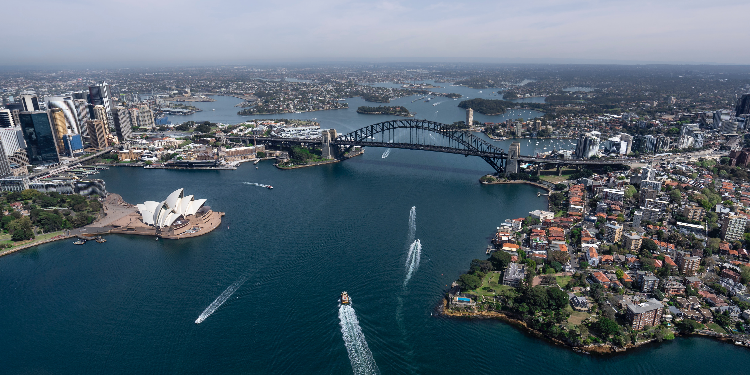
Despite the pandemic and the looming economic downturn of the crisis, Australia looks determined to attract and retain high skills from abroad. The number of visas granted under the Global Tech Talent Visa program for the current financial year has just been tripled, from 5,000 to 15,000. The list now includes new categories, such as education, tourism and the circular economy. While other expat destinations are restricting immigration to allow for jobs for local talents, Australia is taking the opposite approach.
Abundant career prospects
On September 2, 2020, the Australian government updated its skills shortage list, taking into account the new skills needed to boost its economy. This list includes 17 priority professions, particularly in the fields of healthcare, ICT and construction. These jobs include engineers, nurses, developer-programmers, executives, project managers, etc. Therefore, foreign professionals with the required skills can apply and benefit from priority treatment in terms of visas. This also means they are exempt from the current travel restrictions. However, this is not an exhaustive list when it comes to career opportunities in Australia. Many other sectors currently require foreign expertise. For example, the Skilled Migration List includes more than 200 occupations that will require foreign labour over the next few years. So whether you are a teacher, manager, engineer, mechanic or farmer, chances are that you will find a job that matches your profile after the crisis. It's worth noting that some professional visas are a pathway to permanent residence and citizenship in Australia, including for dependents.
A robust economy
Australia can boast of having one of the world's strongest economies while most countries are facing an unprecedented economic and social crisis since the start of the COVID-19 pandemic. According to Deloitte's forecasts, Australia is set to a 4.4% growth rate this year. That said, the COVID-19 vaccination campaign should play a key role, although there's a drop in the number of cases since the past few weeks. The unemployment rate dropped from 7.5% to 6.8% from July to November 2020, which is a good sign. Experts believe that it should not exceed 6% this year thanks to the measures taken by the Australian government. It's also worth noting that Victoria, one of Australia's most affected states with the crisis and strict lockdown, experienced the fastest recovery. This year, Victoria is quite likely to record a 5.3% growth rate, compared to Queensland (4.6%) and New South Wales (4.4%).
Quality higher education
Did you know that five of Australia's universities are in the top 50 of the QS World University Rankings 2021? Today, Australia is home to 40 universities, including three private institutions. You will also find two private international higher education institutions and vocational training institutes. One of the interesting features of the Australian higher education system is its focus on helping students acquire the skills sought-after in the industry of their choice after graduation. Thanks to the various universities' creative approach, students in Australia are renowned for their innovative and entrepreneurial spirit. By choosing the country for your studies, your chances of finding a job in Australia or abroad will be higher. Besides, most university and vocational programs in Australia include internships and other types of training. Also, students are allowed to work 20 hours per week during the semester and full time during summer break. Australian universities provide comprehensive support for international students, from integration to job search and internships.
Incomparable quality of life
The quality of life in Australia is one thing you won't find anywhere else. Australians, who are well-known for their laid back lifestyle, enjoy an excellent work-life balance thanks to a 38-hour workweek, which allows them to spend time with family or friends. Since its cities have are not overpopulated, unlike other countries, there's very little pollution. Australia is also one of the world's safest and most peaceful countries, with a multicultural and multilingual population. You'll quickly realise that the language barrier is just a myth thanks to the warm and welcoming English-speaking people and the presence of a large expat community. Expats in Australia are also entitled to the excellent health system, which is free of charge for residents and affordable for expatriates provided they have health insurance. Even short term visitors have access to Medicare.
A wide range of things to see and to do
With a pleasant climate almost all year round, warm summers and mild winters, Australia is ideal for explorers. Besides its 36,000 km of coastline, with magnificent beaches where you can relax, swim, dive or surf, the country offers great natural wealth and breathtaking landscapes. In total, there are 500 national parks where you can go hiking or cycling, as well as gardens and other green spaces. Australia is a treasure of mountains, valleys, rivers, lakes and islands that you can explore in your free time. The Coffee culture is very present in major cities, so when you're in a lazy mood, you can just head to one of the cafes to relax, watching the passers-by and meet new people. Foodies can choose from a wide range of restaurants with various specialities from Western to Asian cuisines, not to mention the international fast-food chains. Sports enthusiasts can watch or play cricket, rugby, football, tennis, netball and bowling, which are the most popular sports activities so far.



















